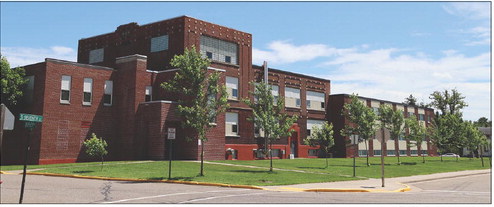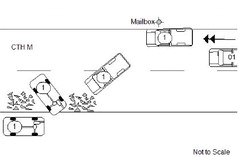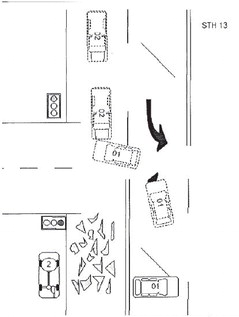Cornell School Board - It’s up to you, whether or not you want a high school


Now that there’s a moment to take a breath, as the Cornell School District transitions to a new school year, the board of education is taking a look at the future of the high school. It was decided, June 23, that CESA will have some information available for the open houses this fall, while preparing presentations later on.
Now that the expected FEMA grant, which would have paid for about 75 percent of a reconstruction project, is no longer on the table, it’s up to the taxpayers to shoulder the burden. To fix just the plumbing issues that have sprung up and the non-working fire system, it would be about $5 million.
That doesn’t address the areas of the building that have had to be closed up, because they are unsafe or unusable. While $5 million is a lot of money to ask for in referendum from voters, there could be another alternative and that is to essentially construct a new building, not counting the shop area, kitchen/commons and gym.
The board feels that simply renovating will not address the major issues the building is facing.
“There’s no remodel,” said board member Greg Baker. “It’s more efficient to run, too,” said board president Lyle Briggs.
Another option, would be to whole-grade share with another district. That would possibly move sixth, seven and eighth grade to the elementary building, meaning they could not take ag or shop for those classes. For sure, sixth grade would likely go to the elementary.
While it’s an option, that’s something the board doesn’t want to see happen.
“Then, we’d have no school left,” said board vice president Jamie Close.
Superintendent Paul Schley agreed, feeling that if there’s no high school, eventually, parents would open enroll their elementary age children to another district. That also means there would be no high school sports teams for Cornell, that the track complex, football and baseball field, would sit unused, along with the high school building.
In addition, the fallout effect of that, would be that families would move out of Cornell, no new families would come in and businesses would close, leaving Cornell a ghost town.
“It’s the end of a lot of stuff,” said Schley. “The other question becomes, what district?”
Schley thinks Stanley or Bloomer are the best options, academically, and that they have more options for students.
Board treasurer Stephanie Seidlitz is concerned that if parents have high school students in whole-grade sharing in another district and elementary kids in Cornell, logistics could make them open enroll out.
“This could be a concern for parents,” said Seidlitz. “This is the problem,” agreed Schley. “I think people need to understand that.”
Schley also pointed out that even if the school closes, Cornell residents will still have to pay school taxes, but it will be based on where students are sent to, which will probably be more expensive.
“You ALWAYS have to pay taxes,” said Schley. No matter which way voters decide, the board hopes that people take into consideration, that the referendum funding request is a need, not a want. They also want voters to realize that it’s not the board’s decision – it’s all on the community.
“It’s not our school, it’s their school,” said board clerk Eileen Sikora.



